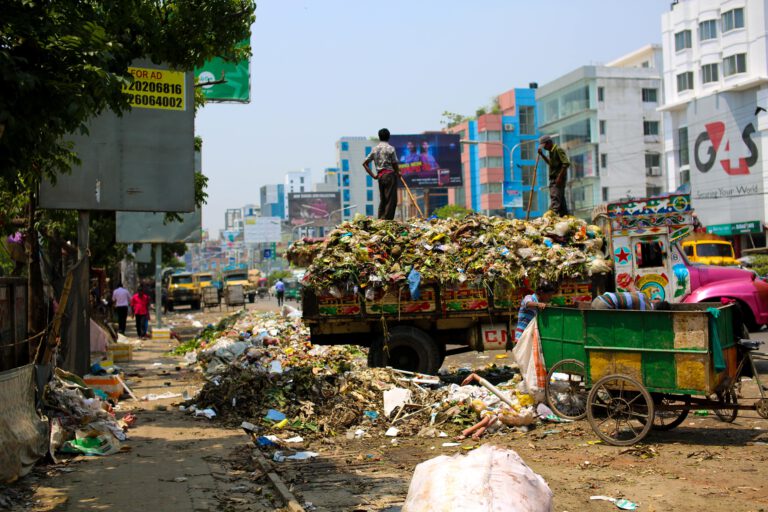This website uses cookies so that we can provide you with the best user experience possible. Cookie information is stored in your browser and performs functions such as recognising you when you return to our website and helping our team to understand which sections of the website you find most interesting and useful.
reduce food waste
10 ways how dmos can reduce food waste
to create more sustainable destinations

How can DMOS REDUCE FOOD WASTE tO CREATE MORE SUSTAINABLE DESTINATIONS?
Food tourism is a rapidly expanding industry with an estimated 39 million travellers choosing their destination based on their food and beverage choices, according to the World Food Travel Association (WFTA, 2021). The amount of food waste produced by the tourism sector is enormous. A lot of food is wasted in our daily operations, from uneaten sandwiches to tiny muffins. According to the United Nations (2019) about one-third of the food produced worldwide is wasted, which has detrimental effects on the environment, the economy, and society. In this article, ten practical ways in which destination marketing organisations (DMOs) can reduce food waste at their destinations are introduced.
1. Promote sustainable behaviours
Working with local restaurants and food businesses DMOs can encourage them to adopt sustainable practices. Reduced portion sizes, discounts for patrons who bring their own containers, and the donation of extra food to nearby charities are a few examples that could be used (Food and Agricultural Organisation of the United Nations (FAO), 2020). Through their websites and social media pages, DMOs can advertise and recognise restaurants and food establishments that are committed to eliminating food waste. For instance, the Eat local program of Tourism Vancouver works with restaurants and food vendors to reduce waste and support local farms (Destination Vancouver, n.d.).
2. Educate visitors about reducing food waste
Furthermore, in order to reinforce the message of preventing food waste, DMOs can share information via pamphlets and signs on their website. This advice includes suggestions like meal planning, just purchasing what is necessary, and safe food storage (FAO, 2020; United States Environmental Protection Agency (U.S. EPA), 2020). DMOs might collaborate with neighbourhood organisations to provide cooking classes and workshops that instruct guests on how to waste less food.
The BCN Challenge program of the Barcelona Provincial Council aims to decrease food waste by providing visitors with instructional courses on wise purchasing, meal planning, and food preservation. The program provides helpful advice on how to conserve money, avoid food waste, and safeguard the environment (Barcelona Provincial Council, n.d.).
3. Partner with food recovery organisations to reduce food waste
By collaborating with food recovery organisations like Food Bank For New York City (Food Bank For New York City, n.d.) DMOs can collect extra food from restaurants and supermarkets and donate it to nearby charities. These organisations contribute to preventing food waste by ensuring that extra food is used effectively. DMOs can encourage visitors to assist these organisations by donating their time or making donations by promoting them on their websites and through social media.
The City of Asheville’s Office of Sustainability partnered with Food Waste Solutions Summit in 2019 to ensure diversity, resilience, and sustainability in regard to food systems and waste minimisation. The initiative emphasizes the value of working together to build stronger food systems. This benefits the local residents and waste reduction objectives through food recovery (City of Asheville. 2019, November 5).
4. Promote the supply of local ingredients
Food waste in tourism destinations can be decreased by encouraging the use of local ingredients. Local sourcing allows food enterprises to get just the amount of ingredients they require, eliminating overproduction and wasteful overordering. Local ingredients also have a longer shelf life and are less prone to degrade fast because they are frequently fresher and more in season. Local sourcing can encourage more ecologically friendly practices and minimise the carbon footprint of the food business by minimising the distance that ingredients must travel (FAO, 2020).
For instance, the “Taste of Nova Scotia” initiative encourages local procurement of sustainable ingredients, such as coffee, and offers business networking opportunities as well as marketing assistance. Using locally roasted coffee in restaurants is promoted by the “Make mornings easy to love with local coffee” campaign (Taste of Nova Scotia, n.d.).
5. Keeping public refrigerators in touristic locations
Another excellent technique to prevent food waste is to install public refrigerators in tourist areas. Restaurants, grocery stores, and private persons can utilise these refrigerators to donate leftover food, balance food, or give away surplus food to those in need. This not only prevents food waste but also offers food for people who cannot afford it (FAO, 2020).
In order to prevent food waste and encourage the sharing of extra food, the “Food Sharing Revolution” project in Berlin, Germany, installs public refrigerators and pantries in tourist areas and neighbourhoods. The project was run by foodsharing.de and received a lot of backing from the general public and businesses (DW News. 2016, February 11).
6. Promote food rescue mobile applications
Users may prevent unsold food at their favourite restaurants from going to waste at a fantastic price by using apps like Too Good To Go and OLIO. In order to encourage tourists to download and utilise these applications while visiting, DMO can collaborate with them and promote them through their websites and social media accounts. Users can lessen waste and support neighbourhood businesses while also obtaining high-quality food at a discount by salvaging unsold food. These apps also promote sustainable consumption patterns and raise awareness of the problem of food waste (Too Good To Go, n.d.; OLIO, n.d.).
7. Support composting initiatives to reduce food waste
Additionally, DMOs can promote composting projects by putting compost bins in public spaces and collaborating with local government to create composting programs. This can offer useful compost for neighbourhood farmers and gardeners, as well as assist in minimising the amount of food waste that ends up in landfills (U.S. EPA 2020). (FAO, 2020).
In Milan, Italy a composting program has been put into place to prevent food waste. The program encourages residents to separate their organic waste from other trash by placing compost bins in public spaces. The resulting compost is subsequently utilised to fertilise public gardens and parks (Zero Waste Cities, 2021).
8. Ensure segregation of waste
Likewise, it is necessary to carefully separate biodegradable from non-biodegradable trash. In addition to reducing the amount of garbage that ends up in landfills, proper waste segregation also promotes the recycling of waste products that can be used in other industries. (FAO, 2020) (U.S. EPA 2020).
The US city of San Francisco has put in place a waste segregation policy that mandates that businesses and residents divide their waste into bins for compost, recycling, and dumping. This initiative has significantly reduced the amount of waste dumped in landfills and increased recycling rates (City and County of San Francisco, n.d.).
9. Promote eco-friendly food packaging and encourage the use of reusable containers
Moreover, encouraging the use of reusable or biodegradable utensils and food packaging in restaurants by giving customers the option to take leftovers home in reusable or biodegradable containers can help reduce waste (FAO, 2020). By working with neighbourhood restaurants, DMO can influence businesses to utilise environmentally friendly packaging and utensils, like compostable plates, cups, and silverware. This would not only assist in waste reduction but also encourage visitors to adopt sustainable lifestyles.
The Canadian city of Vancouver has teamed up with neighbourhood eateries to encourage the use of reusable containers and eco-friendly food packaging. The initiative rewards companies that implement sustainable practices with concessions on business permits and advertising (City of Vancouver, n.d.).
10. Monitor and measure progress
Finally, DMOs need to monitor and measure their results in minimising food waste. This might entail keeping tabs on the quantity of food waste produced during neighbourhood gatherings as well as the adoption of sustainable practices by nearby eateries and food enterprises. DMOs can use this data to pinpoint areas for development and to acknowledge accomplishments (FAO, 2020).
The city of Auckland in New Zealand has put in place a food waste monitoring scheme that keeps tabs on how much food is wasted at nearby events and companies. The information gathered is used to pinpoint areas where waste reduction efforts can be strengthened and to acknowledge waste reduction accomplishments (Auckland Council, n.d.).
Conclusion
Food waste can have a big impact on the environment, the neighbourhood, and local businesses in tourist areas. Yet, there are a number of tactics that DMOs can use to cut down on food waste and encourage sustainable lifestyles. These include educating visitors about the problem of food waste, promoting sustainable consumption patterns, supporting projects like food rescue smartphone apps and public refrigerators, putting in place trash segregation systems, and promoting local sourcing and eco-friendly food packaging. By implementing these methods, DMOs may significantly reduce food waste in tourist areas and advance a more sustainable and ethical travel and tourism sector. Also, they can minimise the environmental impact of the food sector by encouraging tourists to practice eco-friendly behaviours and support neighbourhood businesses. DMOs must therefore play a significant part in minimising food waste and fostering sustainability in tourism areas.
Christy Chittetttu Alex, 30.08.2023
Sources
Asheville Buncombe Food Policy Council. (n.d.). Food waste solutions summit. Retrieved from https://www.abfoodpolicy.org/food-waste-solutions-summit-2/
Auckland Council. (n.d.). Waste Management and Minimisation Plan. Retrieved from https://www.aucklandcouncil.govt.nz/plans-projects-policies-reports-bylaws/our-plans-strategies/topic-based-plans-strategies/environmental-plans-strategies/Pages/waste-management-minimisation-plan.aspx
Barcelona Provincial Council. (n.d.). The BCN Challenge. Retrieved from https://thebcnchallenge.org/the-bcn-challenge/
City and County of San Francisco. (n.d.). Zero Waste. Retrieved from https://sfenvironment.org/zero-waste
City of Asheville. (2019, November 5). Asheville Food Waste Solution Summit to tackle regional food waste crisis. Retrieved from https://www.ashevillenc.gov/news/asheville-food-waste-solution-summit-to-tackle-regional-food-waste-crisis/
City of Vancouver. (n.d.). Single-Use Item Reduction Strategy. Retrieved from https://vancouver.ca/green-vancouver/single-use-items.aspx.
Destination Vancouver. (n.d.). Green Economy. Sustainable Practices. Retrieved March 13, 2023, from https://www.destinationvancouver.com/meeting/our-sustainable-practices/green-economy/
DW News. (2016, February 11). Food-sharing initiative battles Berlin authorities over closed community fridges. DW. Retrieved from https://www.dw.com/en/food-sharing-initiative-battles-berlin-authorities-over-closed-community-fridges/a-19042114
Food and Agriculture Organisation of the United Nations. (2020). Reducing food waste: A priority for the food system. Retrieved from http://www.fao.org/fao-stories/article/en/c/1377323/
Food Bank For New York City. (n.d.). Home. Retrieved from https://www.foodbanknyc.org/
Food Bank For New York City. (n.d.). https://www.foodbanknyc.org/
OLIO. (n.d.). https://olioex.com/
Taste of Nova Scotia. (n.d.). Make mornings easy to love with local coffee. Taste of Nova Scotia. Retrieved from https://tasteofnovascotia.com/make-mornings-easy-to-love-with-local-coffee/
Too Good To Go. (n.d.). Retrieved from https://toogoodtogo.org/en
Tourism Australia. (n.d.). Food and drink. Retrieved from https://www.tourism.australia.com/en/things-to-do/food-and-drink.html
United Nations. (2019). Key facts on food loss and waste you should know! Retrieved from https://www.unenvironment.org/news-and-stories/story/key-facts-food-loss-and-waste-you-should-know
United States Environmental Protection Agency. (2020). Reducing wasted food & packaging: A guide for food services and restaurants. Retrieved from https://www.epa.gov/sustainable-management-food/reducing-wasted-food-packaging-guide-food-services-and-restaurants
World Food Travel Association. (2021). The 2021 state of the food tourism industry. Retrieved from https://worldfoodtravel.org/research/2021-state-of-the-food-tourism-industry/
Zero Waste Cities. (2021). Milan case study: Towards a zero waste city. Retrieved from https://zerowastecities.eu/wp-content/uploads/2021/11/Milan-Case-Study-1.pdf
